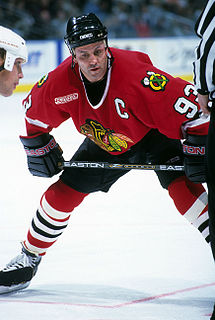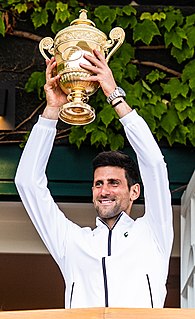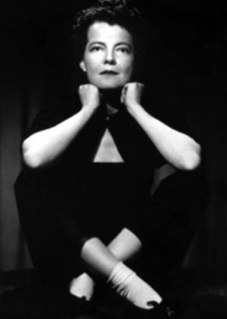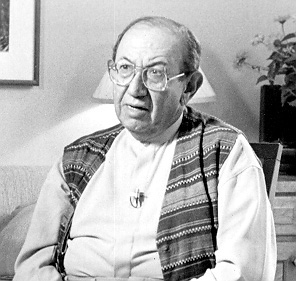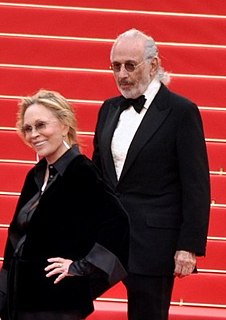A Quote by Henry David Thoreau
I know very well what Goethe meant when he said that he never had a chagrin but he made a poem out of it. I have altogether too much patience of this kind.
Related Quotes
ONCE WHEN I WAS ninth grade i had to write a paper on a poem. One of the lines was"If your eyes weren't open you wouldn't know the difference between dreaming and waking' It hadn't meant meant much to me at the time. After all there'd been a guy in the class that i liked so how could i be expected to pay attention to literary analysis? Now three year later i understand the poem perfectly.
We said we would meet again but we made no arrangements. Not out of any bad feeling between us, but because I felt it had all been said, or not said but understood, and she probably did too. To know she was there was enough, and for her to know I was around was probably too. Sometimes that's all people ever really need. Just to know.
A hundred years ago, Auguste Compte, ... a great philosopher, said that humans will never be able to visit the stars, that we will never know what stars are made out of, that that's the one thing that science will never ever understand, because they're so far away. And then, just a few years later, scientists took starlight, ran it through a prism, looked at the rainbow coming from the starlight, and said: "Hydrogen!" Just a few years after this very rational, very reasonable, very scientific prediction was made, that we'll never know what stars are made of.
I never think of my audience when I write a poem. I try to write out of whatever is haunting me; in order for a poem to feel authentic, I have to feel I'm treading on very dangerous ground, which can mean that the resulting revelations may prove hurtful to other people. The time for thinking about that kind of guilt or any collective sense of responsibility, however, occurs much later in the creative process, after the poem is finished.
Liz, I like you very much," he says. "Oh," she says, "I like you very much, too!" Owen is not sure if she means "O" for Owen, or just plan "Oh." He is not sure what difference it would make in either case. He feels the needs to clarify. "When I said 'I like you very much,' I actually meant 'I love you.'" "O," she says, "I actually meant the same thing." She closes the car door behind her. "Well," he says to himself, driving back to his apartment, "isn't that something?
She'd always known he loved her, it had been the one certainty above all others that had never changed, but she had never said the words aloud and she had never meant them quite this way before. She had said it to him, and she hardly knew what she had meant. They were terrifying words, words to encompass a world.
The subject of the poem usually dictates the rhythm or the rhyme and its form. Sometimes, when you finish the poem and you think the poem is finished, the poem says, "You're not finished with me yet," and you have to go back and revise, and you may have another poem altogether. It has its own life to live.
We have seen too much defeatism, too much pessimism, too much of a negative approach. The answer is simple: if you want something very badly, you can achieve it. It may take patience, very hard work, a real struggle, and a long time; but it can be done. That much faith is a prerequisite of any undertaking.
Dr. Strauss said I had something that was very good. He said I had a good motor-vation. I never ever knew I had that. I felt proud when he said that not every body with an eye-q of 68 had that thing. I don't know what it is or where I got it but he said Algernon had it too. Algernons motor-vation is the cheese they put in his box. But it can't be that because I didn't eat any cheese last week.
Our moment had passed somehow. I was different. He was, too. Without our “madness” to unite us, there wasn’t anything much there. Or maybe too much had happened in too short a time. It’s like when you take a trip with someone you don’t know very well. Sometimes you can get very close very quickly, but then after the trip is over, you realise all that was a false sort of closeness. An intimacy based on the trip more than the travellers, if that makes any sense.
Alexander Liberman was very smart, very elegant. At the end, he didn't have much patience with me because I was a young, anxious, nervous photographer. I worried that I was copying too many other people. And he said, "It's all right to copy people, as long as the people you copy are good and you copy them well."









